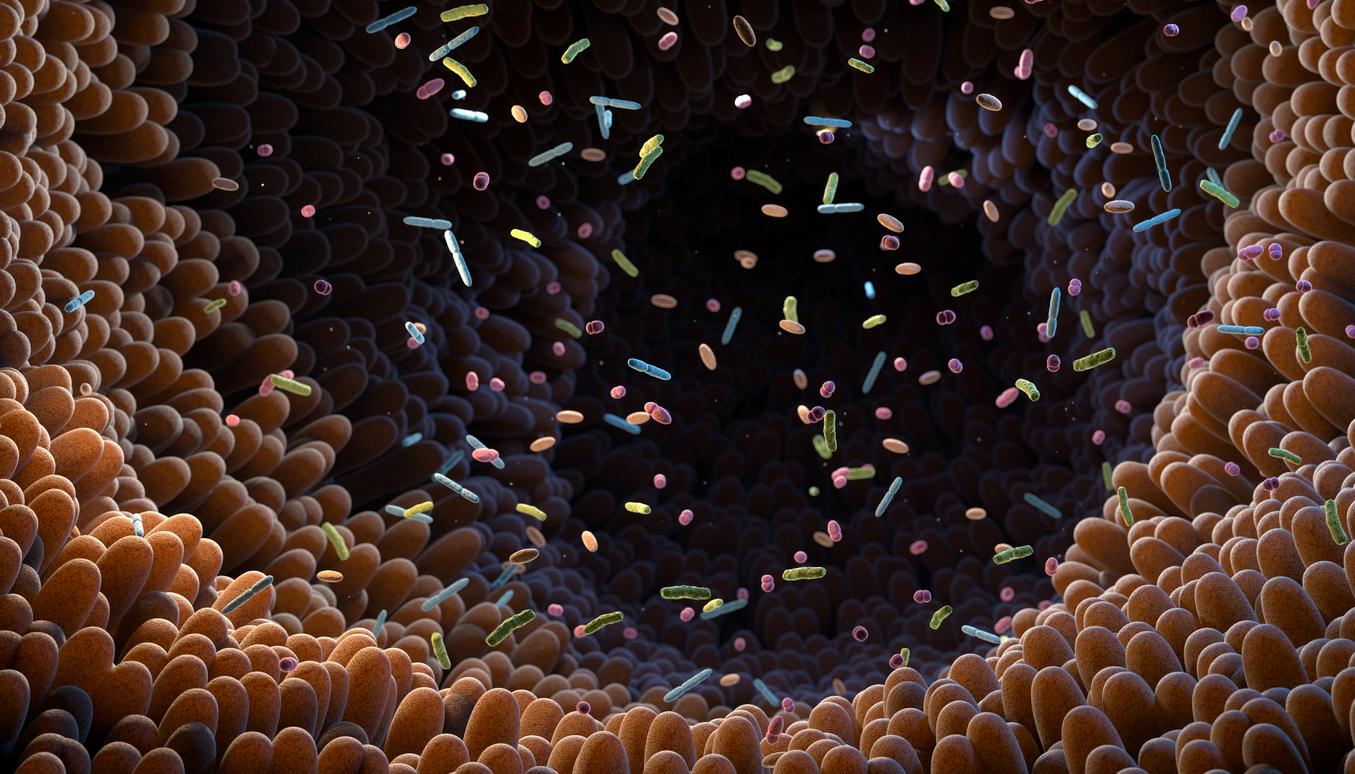Researchers have discovered the role of certain metabolites and intestinal bacteria in the development of three neurodegenerative diseases: Charcot’s, Alzheimer’s and Parkinson’s diseases.

- In their study, the scientists wanted to identify the metabolites linked to three neurodegenerative diseases: Charcot’s, Alzheimer’s and Parkinson’s diseases.
- Levels of DHPS metabolites were lower in diseased patients than in healthy patients.
- The degradation of DHPS metabolites by the Bilophila bacteria would be at the origin of the development of neurodegenerative diseases, according to them.
Amyotrophic lateral sclerosis (Charcot’s disease), Alzheimer’s and Parkinson’s diseases… For patients suffering from one of these three neurodegenerative diseases, there is currently no curative treatment. But research is progressing, as is understanding the causes of these pathologies, which is essential for developing therapeutic solutions.
Some metabolites linked to neurodegenerative diseases
During the annual meeting of the american society for microbiology (ASM), researchers presented the results of their work: they discovered the role played by certain metabolites in the development of these pathologies.
“These results suggest that the gut microbiome plays an important role in the onset and progression of at least some neurodegenerative diseases.” explains Chris Ellis, one of the researchers, in a communicated.
In their study, the scientists wanted to identify the metabolites linked to three neurodegenerative diseases: Charcot’s, Alzheimer’s and Parkinson’s diseases. Thus, they succeeded in showing that some of them, the metabolite DHPS (2,3-dihydroxypropane-1-sulfonate), could, within the human microbiota, play an important role in the metabolic pathways of sulfur, an organic chemical present in many foods.
To discover these metabolites, the researchers analyzed the intestinal microbiotas of people diagnosed at the beginning of one of these three neurodegenerative diseases. To do this, they collected stool samples.
They then compared them to those of people who did not have these pathologies. They discovered:
- 19 metabolic biomarkers linked to these three diseases.
- 20 metabolic biomarkers uniquely associated with ALS
- 16 metabolic biomarkers uniquely associated with Alzheimer’s disease
- 9 metabolic biomarkers uniquely associated with Parkinson’s disease
The 19 common biomarkers included metabolites that have been linked to imbalance in sulfur metabolism pathways.
The role of intestinal bacteria
Another observation from the researchers:
- Gut bacteria Bilophila And Desulfovibrio played a role in the synthesis and degradation of DHPS.
- The sick participants had high levels of Bilophila and had lower levels of DHPS metabolites.
- DHPS metabolite levels were lower in diseased patients than in healthy patients.
And so it is the degradation of DHPS metabolites (by the bacteria Bilophila) and its consequences which would be at the origin of the development of neurodegenerative diseases. Indeed, this phenomenon disrupts the metabolic pathways of sulfur, leads to an accumulation of hydrogen sulfide – composed of sulfur and hydrogen – which promotes inflammation, oxidative stress and which is involved in the dysfunction of mitochondria, a phenomenon linked to neurodegenerative diseases.
The authors of this study therefore believe that the metabolite DHPS could be the “missing link” of the current understanding of neurodegenerative diseases. But further research should be conducted to confirm these results.


















